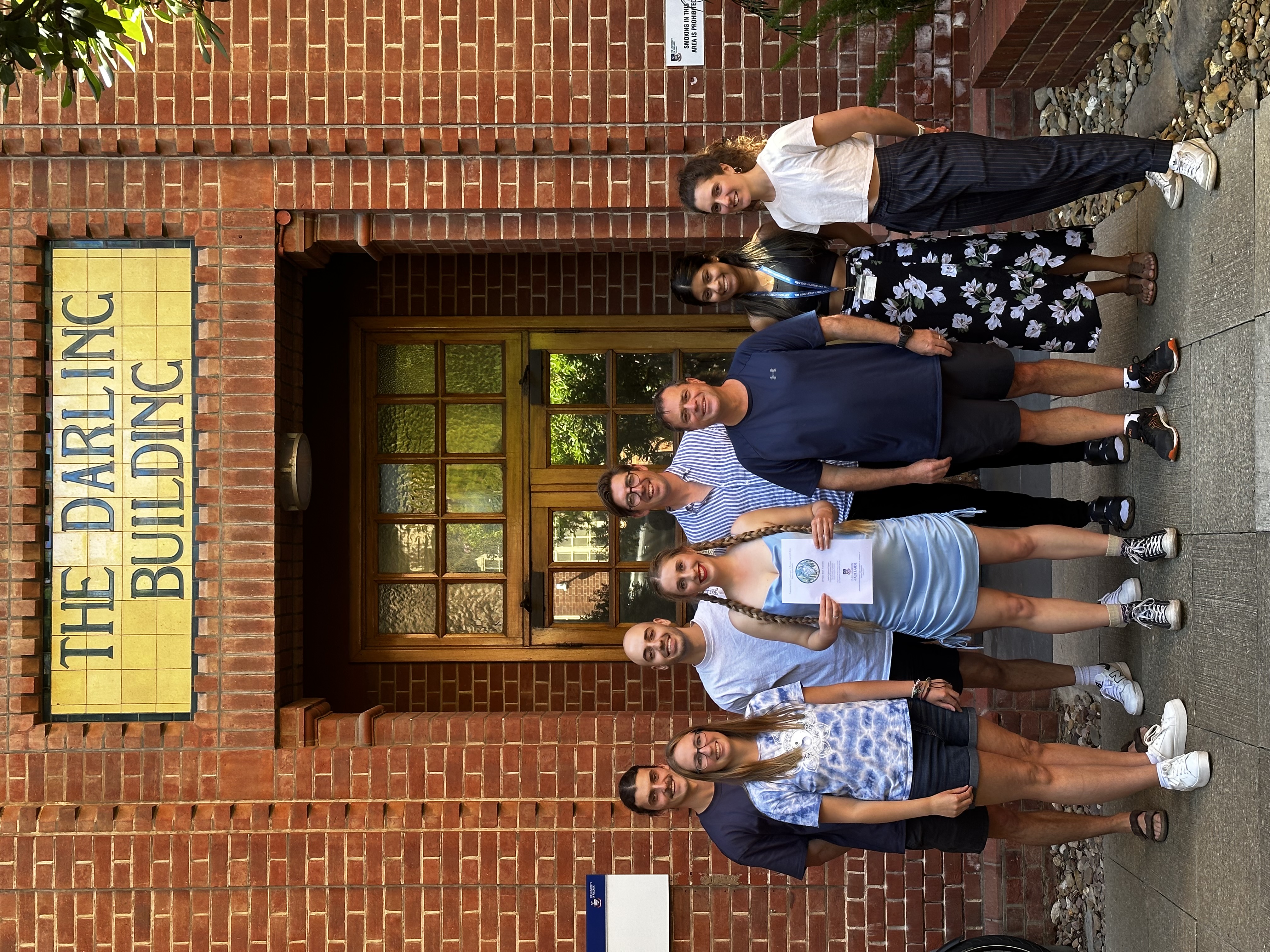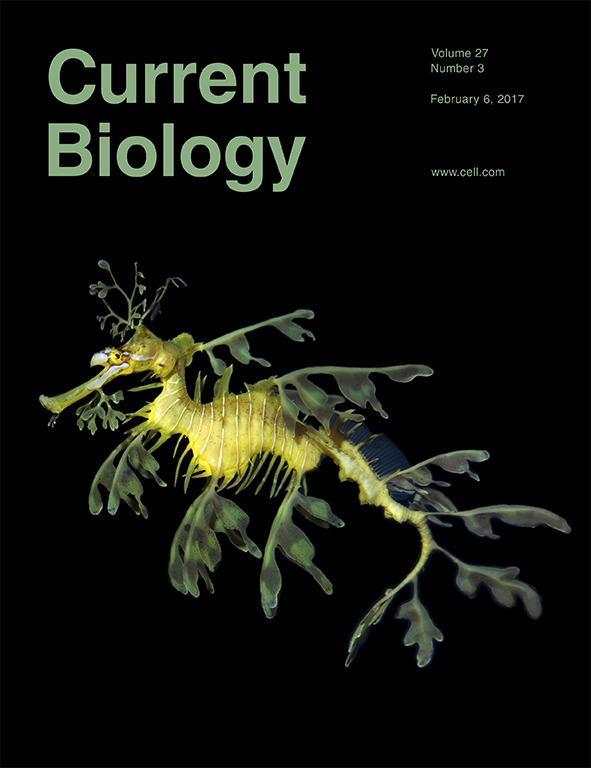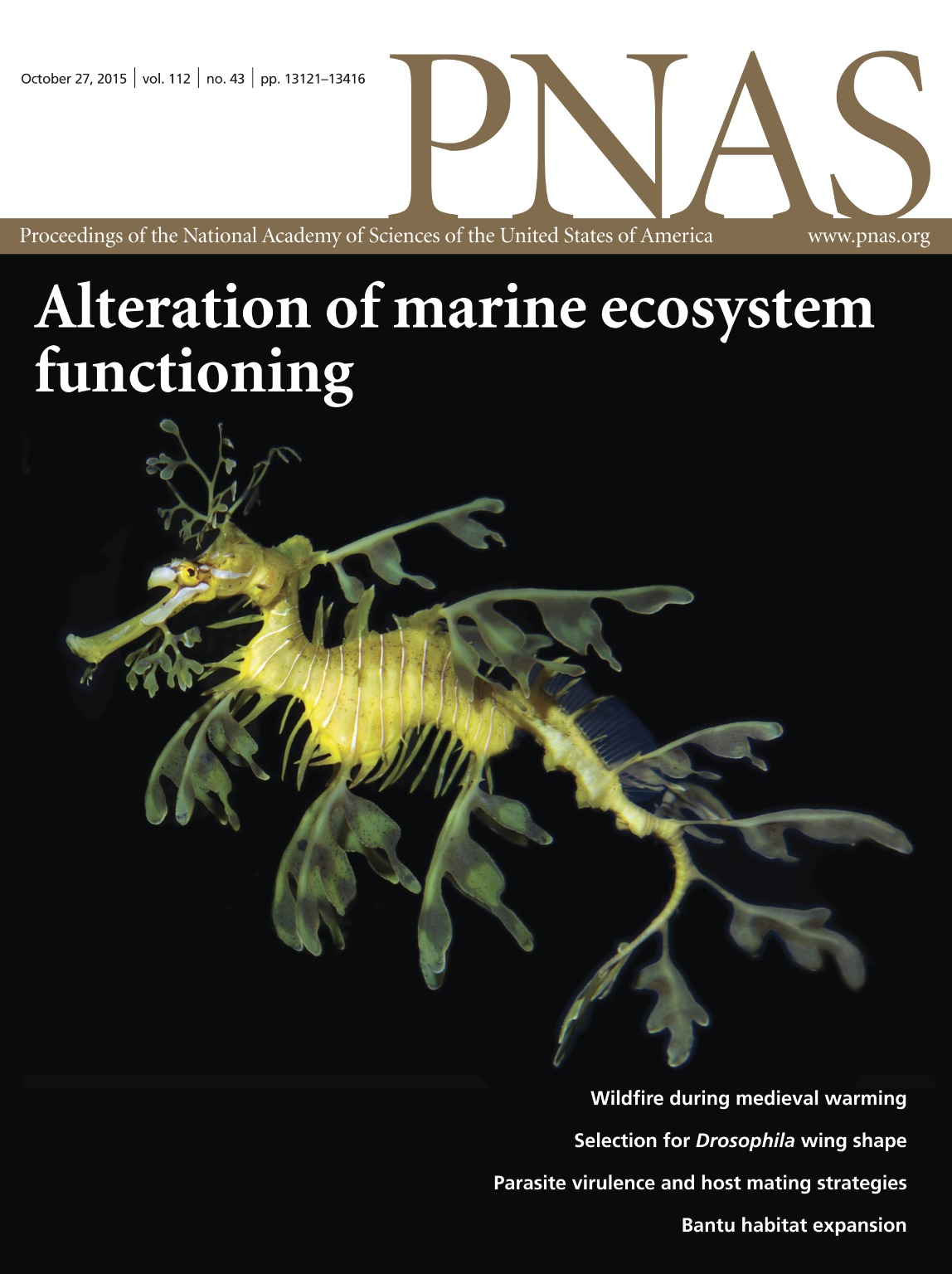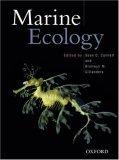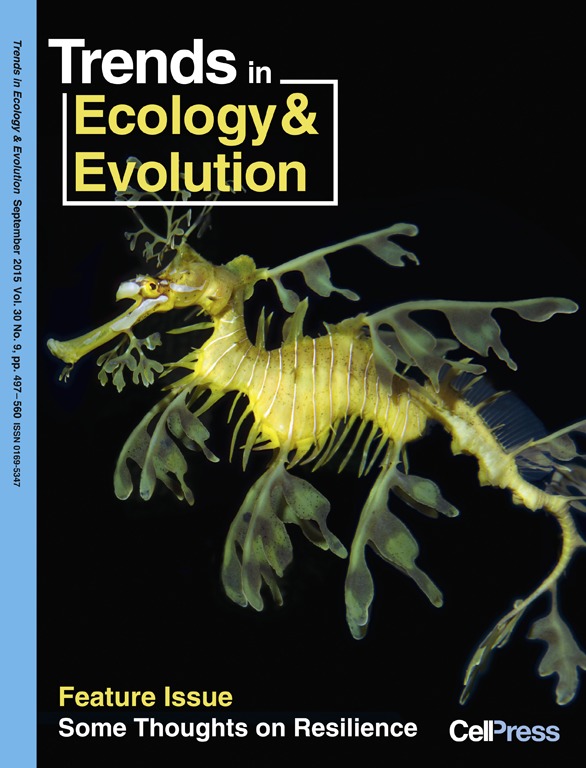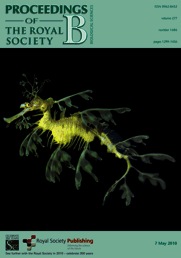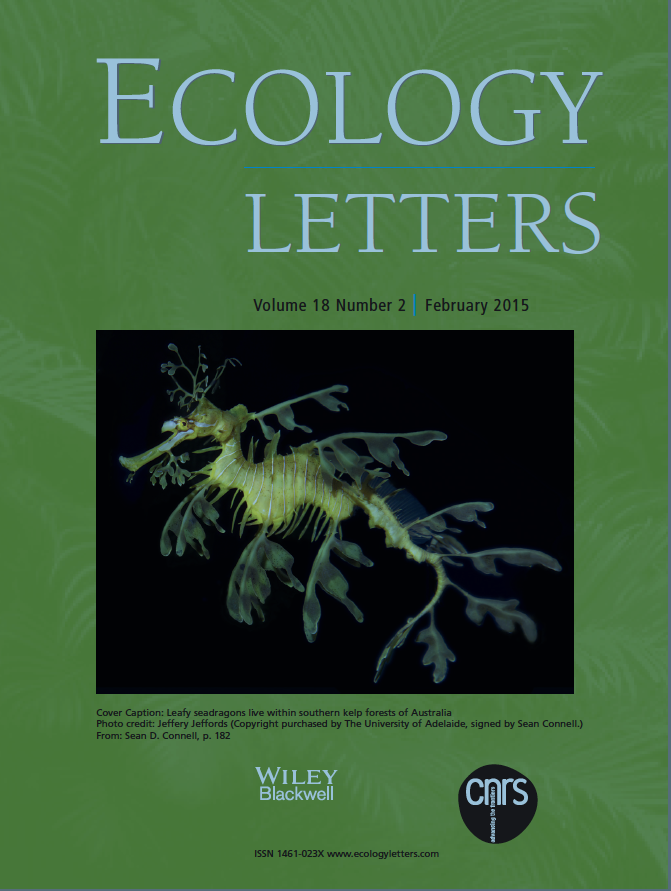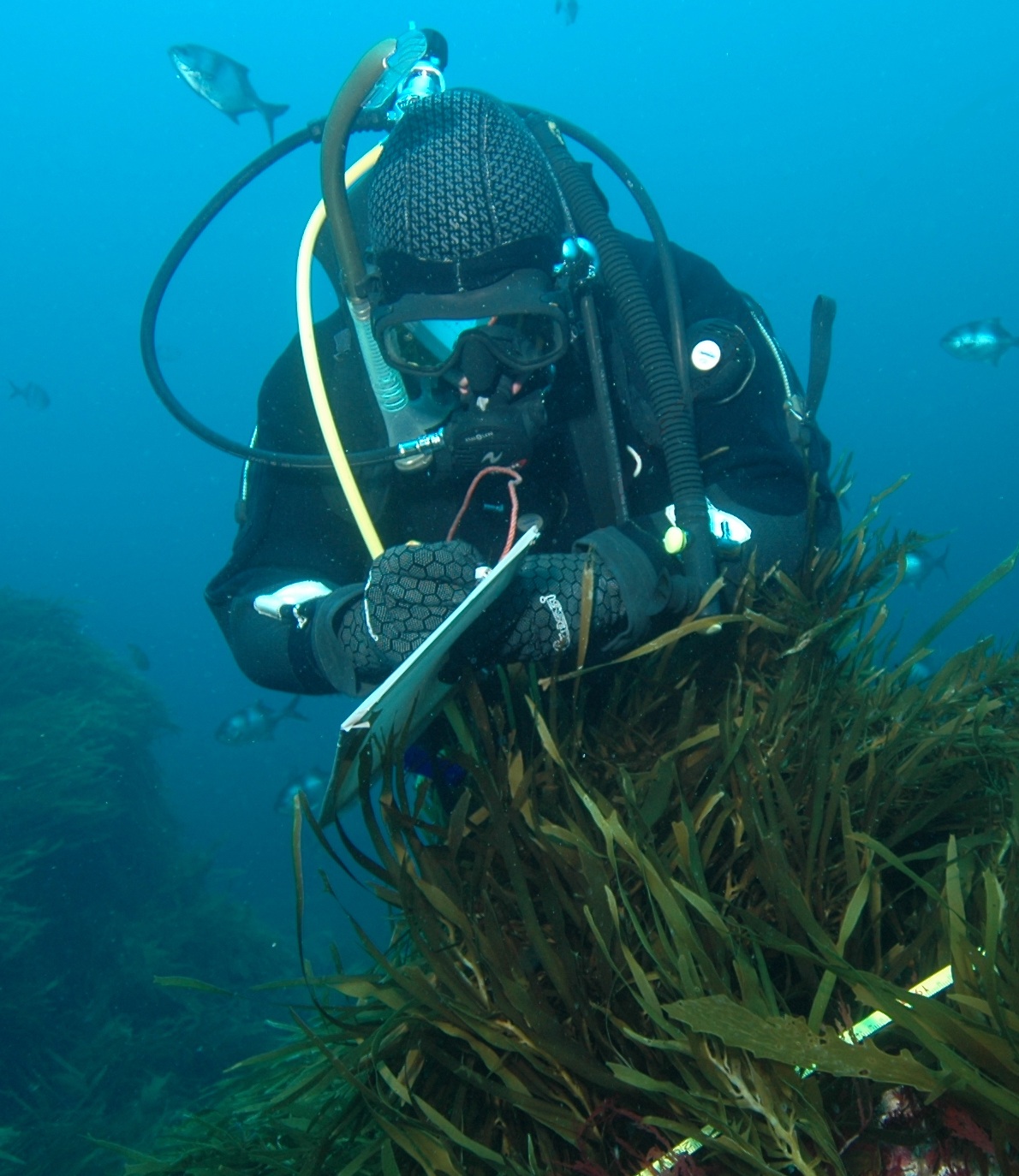| 2026 |
Lindsey, N., Connell, S. D., Katz, E., & McAfee, D. (2026). Community‐based marine restoration to generate social licence and ecological knowledge for upscaling oyster reef restoration. People and Nature, 8(2), 301-315.
DOI |
| 2026 |
Kang, J., Nagelkerken, I., Coppersmith, S., Connell, S. D., Ravasi, T., & Schunter, C. (2026). Core Transcriptional Plasticity Pave the Way for Fish to Succeed in a High-CO<sub>2</sub> World.. Molecular ecology, 35(2), e70222.
DOI |
| 2026 |
Mitchell, A., Coni, E. O. C., Connell, S. D., Booth, D. J., Harvey, B. P., Agostini, S., . . . Nagelkerken, I. (2026). Range-extending fish become competitive dominants under ocean warming but not heatwaves or acidification. Ecology, 107(2), e70226.
DOI Scopus1 |
| 2025 |
Corrales-Guerrero, J., Goldsworthy, S. D., Coleman, M. A., Kelaher, B. P., Connell, S. D., Figueira, W. F., . . . Gillanders, B. M. (2025). The influence of Australian sea lion foraging on benthic assemblages in temperate marine ecosystems. ICES Journal of Marine Science, 82(9), fsaf164-1-fsaf164-13.
DOI |
| 2025 |
Leung, J. Y. S., Nagelkerken, I., Pichler, E. L., Chen, Y., Jones, C. F., Xie, Z., & Connell, S. D. (2025). Morphological adjustments enable sea urchins to sustain calcified structure function under ocean acidification. Proceedings of the Royal Society B : Biological Sciences, 292(2059), 20251893-1-20251893-12.
DOI |
| 2025 |
Hudson, C. J., Jolly, J., Connell, S. D., Ravasi, T., & Harvey, B. P. (2025). Effects of Long-Term Ocean Acidification Exposure on the Structural, Mineralogical, and Mechanical Properties of Sea Urchin (Echinometra spp.) Skeletons at a Natural Volcanic CO2Seep. Environmental Science and Technology, 59(49), 26454-26468.
DOI |
| 2025 |
Kenny, I., McAfee, D., Tanner, J. E., Nunn, H., Kiriakou, N., & Connell, S. D. (2025). Lessons learned from using large oyster reef restorations to facilitate seagrass restoration. Restoration Ecology, 8 pages.
DOI |
| 2025 |
McLeod, L. D., Connell, S. D., & Mcafee, D. (2025). Recovering kelp forests using newly constructed oyster reef restorations: adapting a kelp transplant method. Restoration Ecology, 33(5), e70081-1-e70081-8.
DOI Scopus1 WoS1 |
| 2025 |
Hohmann, M. H., & Connell, S. D. (2025). Comparing the writing styles of highly and rarely cited papers in conservation biology. Biological Conservation, 307, 111125.
DOI Scopus2 WoS1 |
| 2025 |
Hohmann, M. H., Barnett, A. G., King, N., & Connell, S. D. (2025). The evolution of scientific writing: an analysis of 20 million abstracts over 70 years in health and medical science. Scientometrics, 130(7), 3349-3366.
DOI Scopus1 WoS1 |
| 2025 |
Dawson, B. R., Mantzioris, E., Connell, S. D., Nagelkerken, I., Hall, T., & Mellin, C. (2025). Fish by-products as reliable proxies to evaluate nutritional fatty acid contents in commercial fish fillets. Food Chemistry, 466(142223), 142223-1-142223-10.
DOI Scopus1 WoS1 |
| 2025 |
Pichler, E., Connell, S. D., & McAfee, D. (2025). Improving human well-being through community-led coastal restoration. Biological Conservation, 301, 110892-1-110892-10.
DOI Scopus5 WoS5 |
| 2025 |
Angelakis, N., Lowther, A. D., Page, B., Connell, S. D., & Goldsworthy, S. D. (2025). Animal-borne video highlights diverse prey capture tactics and habitat use in the Australian sea lion. Animal Behaviour, 222, 123108.
DOI Scopus1 WoS1 |
| 2024 |
Wawryk, A., Mcafee, D., Cooper, K., McCormack, P., Castles, M., Drew, G., & Connell, S. (2024). Law and Governance for Oyster Reef Restoration: The South Australian Experience. Environmental and Planning Law Journal, 40(6), 355-369.
DOI |
| 2024 |
Ferreira, C. M., Connell, S. D., Goldenberg, S. U., Leung, J. Y. S., & Nagelkerken, I. (2024). Resource homogenisation drives niche convergence between generalists and specialists in a future ocean. Science of the Total Environment, 958, 177862-1-177862-10.
DOI Scopus3 Europe PMC1 |
| 2024 |
Williams, B. R., McAfee, D., & Connell, S. D. (2024). Anthropogenic noise disrupts acoustic cues for recruitment. Proceedings of the Royal Society B: Biological Sciences, 291(2027), 20240741-12.
DOI Scopus4 WoS4 Europe PMC2 |
| 2024 |
Cipriani, V., Goldenberg, S. U., Connell, S. D., Ravasi, T., & Nagelkerken, I. (2024). Can niche plasticity mediate species persistence under ocean acidification?. The Journal of Animal Ecology, 93(9), 1380-1391.
DOI Scopus5 WoS5 Europe PMC2 |
| 2024 |
Angelakis, N., Grammer, G. L., Connell, S. D., Bailleul, F., Durante, L. M., Kirkwood, R., . . . Goldsworthy, S. D. (2024). Using sea lion-borne video to map diverse benthic habitats in southern Australia. Frontiers in Marine Science, 11, 13 pages.
DOI Scopus2 WoS2 |
| 2024 |
Eger, A. M., Aguirre, J. D., Altamirano, M., Arafeh-Dalmau, N., Arroyo, N. L., Bauer-Civiello, A. M., . . . Vergès, A. (2024). The Kelp Forest Challenge: A collaborative global movement to protect and restore 4 million hectares of kelp forests. Journal of Applied Phycology, 36(2), 951-964.
DOI Scopus37 WoS39 |
| 2024 |
Eger, A., Aguirre, J. D., Altamirano, M., Arafeh‑Dalmau, N., Arroyo, N. L., Bauer‑Civiello, A. M., . . . Vergès, A. (2024). Correction to: The Kelp Forest Challenge: A collaborative global movement to protect and restore 4 million hectares of kelp forests (Journal of Applied Phycology, (2023), 10.1007/s10811-023-03103-y). Journal of Applied Phycology, 36(2), 965-967.
DOI |
| 2024 |
McAfee, D., McLeod, L. D., Carruthers, S., & Connell, S. D. (2024). Reversing functional extinction: successful restoration of eradicated oyster reefs. Restoration Ecology, 32(5), e14169-1-e14169-11.
DOI Scopus9 WoS10 |
| 2023 |
Kenny, I., Connell, S. D., Drew, G., Wright, A., Carruthers, S., & McAfee, D. (2023). Aligning social and ecological goals for successful marine restoration. Biological Conservation, 288, 110357-1-110357-10.
DOI Scopus21 WoS22 Europe PMC2 |
| 2023 |
McAfee, D., & Connell, S. D. (2023). Rapid reversal of ecological extinction. Science (New York, N.Y.), 381(6658), 613.
DOI |
| 2023 |
McAfee, D., Leung, J. Y. S., & Connell, S. D. (2023). Improving ecological function of polluted coasts under a tide of plastic waste. Frontiers in Ecology and the Environment, 21(9), 435-442.
DOI Scopus2 WoS2 |
| 2023 |
Connell, S. D., & Leung, J. Y. S. (2023). Reproducibility crisis and gravitation towards a consensus in ocean acidification research. Nature Climate Change, 13(11), 1266-1271.
DOI Scopus13 WoS13 |
| 2023 |
Hudson, C. J., Agostini, S., Wada, S., Hall-Spencer, J. M., Connell, S. D., & Harvey, B. P. (2023). Ocean acidification increases the impact of typhoons on algal communities.. The Science of the total environment, 865, 161269.
DOI Scopus11 WoS11 Europe PMC2 |
| 2023 |
Angelakis, N., Goldsworthy, S. D., Connell, S. D., & Durante, L. M. (2023). A novel method for identifying fine-scale bottom-use in a benthic-foraging pinniped.. Mov Ecol, 11(1), 1-11.
DOI Scopus3 WoS3 |
| 2023 |
Williams, B. R., McAfee, D., & Connell, S. D. (2023). Combining ecology and technology to kick‐start oyster reef restoration. Restoration Ecology, 31(8), e13975-1-e13975-10.
DOI Scopus5 WoS5 |
| 2022 |
McAfee, D., Williams, B. R., McLeod, L., Reuter, A., Wheaton, Z., & Connell, S. D. (2022). Soundscape enrichment enhances recruitment and habitat building on new oyster reef restorations. Journal of Applied Ecology, 60(1), 111-120.
DOI Scopus26 WoS24 |
| 2022 |
Leung, J. Y. S., Nagelkerken, I., Pistevos, J. C. A., Xie, Z., Zhang, S., & Connell, S. D. (2022). Shark teeth can resist ocean acidification. Global Change Biology, 28(7), 2286-2295.
DOI Scopus6 WoS5 Europe PMC2 |
| 2022 |
Freeling, B. S., Dry, M. J., & Connell, S. D. (2022). Climate Donations Inspired by Evidence-Based Fundraising. Frontiers in Psychology, 13, 1-8.
DOI Scopus1 WoS1 Europe PMC1 |
| 2022 |
Rodriguez-Dominguez, A., Connell, S. D., Coni, E. O. C., Sasaki, M., Booth, D. J., & Nagelkerken, I. (2022). Phenotypic responses in fish behaviour narrow as climate ramps up. Climatic Change, 171(1-2), 19-1-19-18.
DOI Scopus6 WoS3 |
| 2022 |
Reinhold, S. L., Goldsworthy, S. D., Arnould, J. P. Y., Gillanders, B. M., Connell, S. D., & McIntosh, R. R. (2022). Tracing Seal Predation Back to the Source Colony of Their Penguin Prey: A Trace Element and Stable Isotope Analysis. Frontiers in Marine Science, 9, 1-14.
DOI Scopus4 WoS4 |
| 2022 |
Williams, B. R., Mcafee, D., & Connell, S. D. (2022). Oyster larvae swim along gradients of sound. Journal of Applied Ecology, 59(7), 1815-1824.
DOI Scopus24 WoS21 Europe PMC5 |
| 2022 |
Mcafee, D., McLeod, I. M., Alleway, H. K., Bishop, M. J., Branigan, S., Connell, S. D., . . . Gillies, C. L. (2022). Turning a lost reef ecosystem into a national restoration program.. Conservation biology : the Journal of the Society for Conservation Biology, 36(6), e138958-1-e138958-10.
DOI Scopus51 WoS53 Europe PMC10 |
| 2022 |
Mcafee, D., Drew, G., & Connell, S. D. (2022). Recentering the role of marine restoration science to bolster community stewardship. Earth System Governance, 13, 1-6.
DOI Scopus12 WoS12 |
| 2022 |
Mcafee, D., Reis-Santos, P., Jones, A. R., Gillanders, B. M., Mellin, C., Nagelkerken, I., . . . Connell, S. D. (2022). Multi-habitat seascape restoration: optimising marine restoration for coastal repair and social benefit. Frontiers in Marine Science, 9, 1-10.
DOI Scopus30 WoS28 |
| 2022 |
Leung, J. Y. S., Zhang, S., & Connell, S. D. (2022). Is Ocean Acidification Really a Threat to Marine Calcifiers? A Systematic Review and Meta-Analysis of 980+ Studies Spanning Two Decades. Small, 18(35), 32 pages.
DOI Scopus185 WoS172 Europe PMC77 |
| 2022 |
Nagelkerken, I., & Connell, S. D. (2022). Ocean acidification drives global reshuffling of ecological communities. Global Change Biology, 28(23), 7038-7048.
DOI Scopus28 WoS30 Europe PMC14 |
| 2021 |
Connell, S., Freeling, B., Doubleday, Z., Dry, M., & Semmler, C. (2021). Better writing in scientific publications builds reader confidence and understanding. Frontiers in Psychology, 12(714321), 1-8.
DOI Scopus19 WoS19 Europe PMC8 |
| 2021 |
Freeling, B. S., & Connell, S. D. (2021). Animal minds, social change, and the future of fisheries science. Frontiers in Marine Science, 8, 1-6.
DOI Scopus4 WoS2 |
| 2021 |
McAfee, D., Costanza, R., & Connell, S. D. (2021). Valuing marine restoration beyond the 'too small and too expensive'. Trends in Ecology and Evolution, 36(11), 968-971.
DOI Scopus32 WoS32 Europe PMC8 |
| 2021 |
Riera, R., Rodríguez, R., McAfee, D., & Connell, S. D. (2021). The COVID-19 lockdown provides clues for better science communication on environmental recovery. Environmental Conservation, 49(1), 1-3.
DOI Scopus2 WoS2 |
| 2021 |
McAfee, D., Larkin, C., & Connell, S. D. (2021). Multi-species restoration accelerates recovery of extinguished oyster reefs. Journal of Applied Ecology, 58(2), 286-294.
DOI Scopus39 WoS36 Europe PMC4 |
| 2021 |
McAfee, D., & Connell, S. D. (2021). The global fall and rise of oyster reefs. Frontiers in Ecology and the Environment, 19(2), 118-125.
DOI Scopus47 WoS44 |
| 2021 |
McAfee, D., Reinhold, S. L., Alleway, H. K., & Connell, S. D. (2021). Environmental solutions fast-tracked: Reversing public scepticism to public engagement. Biological Conservation, 253, 1-8.
DOI Scopus34 WoS35 Europe PMC5 |
| 2021 |
Nagelkerken, I., Alemany, T., Anquetin, J. M., Ferreira, C. M., Ludwig, K. E., Sasaki, M., & Connell, S. D. (2021). Ocean acidification boosts reproduction in fish via indirect effects. PLoS Biology, 19(1), 1-21.
DOI Scopus24 WoS21 Europe PMC11 |
| 2021 |
Coni, E. O. C., Nagelkerken, I., Ferreira, C. M., Connell, S. D., & Booth, D. J. (2021). Ocean acidification may slow the pace of tropicalization of temperate fish communities. Nature Climate Change, 11(3), 249-256.
DOI Scopus23 WoS24 |
| 2021 |
Leung, J. Y. S., Russell, B. D., Coleman, M. A., Kelaher, B. P., & Connell, S. D. (2021). Long-term thermal acclimation drives adaptive physiological adjustments of a marine gastropod to reduce sensitivity to climate change. Science of the Total Environment, 771, 1-10.
DOI Scopus38 WoS37 Europe PMC13 |
| 2021 |
Draper, J. T., Freeling, B. S., & Connell, S. D. (2021). Sparking Creativity in Science Education. Journal of Creative Behavior, 55(4), 893-898.
DOI Scopus4 WoS4 |
| 2021 |
Petit‐Marty, N., Nagelkerken, I., Connell, S. D., & Schunter, C. (2021). Natural CO₂ seeps reveal adaptive potential to ocean acidification in fish. Evolutionary Applications, 14(7), 1794-1806.
DOI Scopus15 WoS14 Europe PMC10 |
| 2021 |
Williams, B. R., Mcafee, D., & Connell, S. D. (2021). Repairing recruitment processes with sound technology to accelerate habitat restoration. Ecological Applications, 31(6), e02386-1-e02386-7.
DOI Scopus19 WoS17 Europe PMC8 |
| 2021 |
Ferreira, C. M., Connell, S. D., Goldenberg, S. U., & Nagelkerken, I. (2021). Positive species interactions strengthen in a high-CO₂ ocean. Proceedings of the Royal Society B: Biological Sciences, 288(1954), 1-6.
DOI Scopus5 WoS4 Europe PMC2 |
| 2021 |
Freeling, B. S., & Connell, S. D. (2021). Advancing Government Legitimacy through the Scientific Study of Sentience. World Futures, 77(5), 395-404.
DOI Scopus1 |
| 2020 |
Nagelkerken, I., Goldenberg, U. S., Ferreira, C. M., Ullah, M. H., & Connell, S. D. (2020). Trophic pyramids reorganize when food web architecture fails to adjust to ocean change. Science, 369(6505), 829-832.
DOI Scopus96 WoS89 Europe PMC42 |
| 2020 |
Leung, J. Y. S., Russell, B. D., & Connell, S. D. (2020). Linking energy budget to physiological adaptation: how a calcifying gastropod adjusts or succumbs to ocean acidification and warming. Science of the Total Environment, 715, 136939-1-136939-8.
DOI Scopus81 WoS70 Europe PMC37 |
| 2020 |
Zitoun, R., Connell, S. D., Cornwall, C. E., Currie, K. I., Fabricius, K., Hoffmann, L. J., . . . Smith, A. M. (2020). A unique temperate rocky coastal hydrothermal vent system (Whakaari-White Island, Bay of Plenty, New Zealand): constraints for ocean acidification studies. Marine and Freshwater Research, 71(3), 321-344.
DOI Scopus17 WoS13 |
| 2020 |
McAfee, D., & Connell, S. D. (2020). Cuing oyster recruitment with shell and rock: implications for timing reef restoration. Restoration Ecology, 28(3), 6 pages.
DOI Scopus31 WoS31 |
| 2020 |
Falkenberg, L. J., Bellerby, R. G. J., Connell, S. D., Fleming, L. E., Maycock, B., Russell, B. D., . . . Dupont, S. (2020). Ocean Acidification and Human Health.. Int J Environ Res Public Health, 17(12), 1-18.
DOI Scopus287 WoS247 Europe PMC33 |
| 2020 |
Leung, J. Y. S., Chen, Y., Nagelkerken, I., Zhang, S., Xie, Z., & Connell, S. D. (2020). Calcifiers can adjust shell building at the nanoscale to resist ocean acidification. Small, 16(37), 2003186-1-2003186-8.
DOI Scopus36 WoS35 Europe PMC16 |
| 2020 |
Doubleday, Z. A., & Connell, S. D. (2020). Shining a Brighter Light on Solution Science in Ecology. One Earth, 2(1), 16-19.
DOI Scopus13 WoS10 |
| 2020 |
Tanner, J. E., McSkimming, C., Russell, B. D., & Connell, S. D. (2020). Rapid restoration of belowground structure and fauna of a seagrass habitat. Restoration Ecology, 29(1), e13289-1-e13289-10.
DOI Scopus13 WoS12 |
| 2020 |
Freeling, B. S., & Connell, S. (2020). Funding Conservation through an Emerging Social Movement. Trends in Ecology and Evolution, 35(1), 3-6.
DOI Scopus14 WoS10 Europe PMC3 |
| 2019 |
Leung, J. Y. S., Russell, B. D., & Connell, S. D. (2019). Adaptive Responses of Marine Gastropods to Heatwaves. One Earth, 1(3), 374-381.
DOI Scopus89 WoS77 |
| 2019 |
Leung, J. Y. S., Doubleday, Z. A., Nagelkerken, I., Chen, Y., Xie, Z., & Connell, S. D. (2019). How calorie-rich food could help marine calcifiers in a CO₂-rich future. Proceedings of the Royal Society B: Biological Sciences, 286(1906), 20190757-1-20190757-5.
DOI Scopus34 WoS32 Europe PMC19 |
| 2019 |
Rodriguez Dominguez, A., Connell, S. D., Leung, J. Y. S., & Nagelkerken, I. (2019). Adaptive responses of fishes to climate change: feedback between physiology and behaviour. Science of the Total Environment, 692, 1242-1249.
DOI Scopus37 WoS34 Europe PMC17 |
| 2019 |
Mcafee, D., Alleway, H. K., & Connell, S. D. (2019). Environmental solutions sparked by environmental history.. Conservation biology : the journal of the Society for Conservation Biology, 34(2), 386-394.
DOI Scopus28 WoS26 Europe PMC7 |
| 2019 |
Ferreira, C. M., Nagelkerken, I., Goldenberg, U., Walden, G., Leung, J. Y. S., & Connell, S. D. (2019). Functional loss in herbivores drives runaway expansion of weedy algae in a near-future ocean. Science of the Total Environment, 695, 133829-1-133829-8.
DOI Scopus12 WoS12 Europe PMC6 |
| 2019 |
Doubleday, Z., Nagelkerken, I., Coutts, M., Goldenberg, S., & Connell, S. (2019). A triple trophic boost: How carbon emissions indirectly change a marine food chain. Global Change Biology, 25(3), 978-984.
DOI Scopus21 WoS20 Europe PMC11 |
| 2019 |
Freeling, B., Doubleday, Z. A., & Connell, S. D. (2019). How can we boost the impact of publications? Try better writing. Proceedings of the National Academy of Sciences of the United States of America, 116(2), 341-343.
DOI Scopus50 WoS43 Europe PMC16 |
| 2019 |
McAfee, D., Doubleday, Z. A., Geiger, N., & Connell, S. D. (2019). Everyone loves a success story: Optimism inspires conservation engagement. BioScience, 69(4), 274-281.
DOI Scopus113 WoS103 |
| 2019 |
McAfee, D., & Connell, S. D. (2019). Balancing the Benefits of Optimism and Pessimism in Conservation: a Response to Kidd, Bekessy, and Garrard. Trends in Ecology and Evolution, 34(8), 692-693.
DOI Scopus12 WoS13 Europe PMC4 |
| 2018 |
Goldenberg, S., Nagelkerken, I., Marangon, E., Bonnet, A., Ferreira, C., & Connell, S. (2018). Ecological complexity buffers the impacts of future climate on marine consumers. Nature Climate Change, 8(3), 229-233.
DOI Scopus98 WoS97 |
| 2018 |
Heldt, K., Connell, S., & Munguia, P. (2018). Increasing use of human-dominated habitats as CO₂ emissions warm and acidify oceans. Estuaries and Coasts, 41(6), 1660-1666.
DOI Scopus1 WoS1 |
| 2018 |
Rossi, T., Pistevos, J., Connell, S., & Nagelkerken, I. (2018). On the wrong track: ocean acidification attracts larval fish to irrelevant environmental cues. Scientific Reports, 8(1), 5840-1-5840-6.
DOI Scopus21 WoS17 Europe PMC7 |
| 2018 |
Connell, S., Doubleday, Z., Foster, N., Hamlyn, S., Harley, C., Helmuth, B., . . . Russell, B. (2018). The duality of ocean acidification as a resource and a stressor. Ecology, 99(5), 1005-1010.
DOI Scopus64 WoS60 Europe PMC33 |
| 2018 |
Leung, J., Nagelkerken, I., Russell, B., Ferreira, C., & Connell, S. (2018). Boosted nutritional quality of food by CO₂ enrichment fails to offset energy demand of herbivores under ocean warming, causing energy depletion and mortality. Science of the Total Environment, 639, 360-366.
DOI Scopus37 WoS33 Europe PMC15 |
| 2018 |
Rodriguez-Dominguez, A., Connell, S., Baziret, C., & Nagelkerken, I. (2018). Irreversible behavioural impairment of fish starts early: Embryonic exposure to ocean acidification. Marine Pollution Bulletin, 133, 562-567.
DOI Scopus13 WoS10 Europe PMC4 |
| 2018 |
Ferreira, C. M., Nagelkerken, I., Goldenberg, S. U., & Connell, S. D. (2018). CO₂ emissions boost the benefits of crop production by farming damselfish. Nature Ecology and Evolution, 2(8), 1223-1226.
DOI Scopus14 WoS13 Europe PMC6 |
| 2018 |
Nagelkerken, I., Goldenberg, S. U., Coni, E. O. C., & Connell, S. D. (2018). Microhabitat change alters abundances of competing species and decreases species richness under ocean acidification. Science of the Total Environment, 645, 615-622.
DOI Scopus18 WoS17 Europe PMC7 |
| 2018 |
Martínez, B., Radford, B., Thomsen, M., Connell, S., Carreño, F., Bradshaw, C., . . . Wernberg, T. (2018). Distribution models predict large contractions of habitat-forming seaweeds in response to ocean warming. Diversity and Distributions, 24(10), 1350-1366.
DOI Scopus159 WoS158 |
| 2018 |
Doubleday, Z. A., & Connell, S. D. (2018). Let scientific writing evolve, not stagnate. Trends in ecology and evolution, 33(11), 812-813.
DOI Scopus3 WoS3 Europe PMC3 |
| 2018 |
Doubleday, Z. A., & Connell, S. D. (2018). Weedy futures: can we benefit from the species that thrive in the marine Anthropocene?. Frontiers in ecology and the environment, 16(10), 599-604.
DOI Scopus28 WoS25 |
| 2017 |
Pistevos, J., Nagelkerken, I., Rossi, T., & Connell, S. (2017). Ocean acidification alters temperature and salinity preferences in larval fish. Oecologia, 183(2), 545-553.
DOI Scopus22 WoS18 Europe PMC11 |
| 2017 |
Sunday, J., Fabricius, K., Kroeker, K., Anderson, K., Brown, N., Barry, J., . . . Harley, C. (2017). Ocean acidification can mediate biodiversity shifts by changing biogenic habitat. Nature Climate Change, 7(1), 81-85.
DOI Scopus184 WoS169 |
| 2017 |
Connell, S., Doubleday, Z., Hamlyn, S., Foster, N., Harley, C., Helmuth, B., . . . Russell, B. (2017). How ocean acidification can benefit calcifiers. Current Biology, 27(3), 95-96.
DOI Scopus74 WoS65 Europe PMC37 |
| 2017 |
Leung, J., Russell, B., & Connell, S. (2017). Mineralogical plasticity acts as a compensatory mechanism to the impacts of ocean acidification. Environmental Science and Technology, 51(5), 2652-2659.
DOI Scopus63 WoS58 Europe PMC34 |
| 2017 |
Ghedini, G., & Connell, S. (2017). Moving ocean acidification research beyond a simple science: Investigating ecological change and their stabilizers. Food Webs, 13, 53-59.
DOI Scopus15 |
| 2017 |
Goldenberg, S., Nagelkerken, I., Ferreira, C., Ullah, H., & Connell, S. (2017). Boosted food web productivity through ocean acidification collapses under warming. Global Change Biology, 23(10), 4177-4184.
DOI Scopus58 WoS55 Europe PMC24 |
| 2017 |
Connell, S., Fernandes, M., Burnell, O., Doubleday, Z., Griffin, K., Irving, A., . . . Falkenberg, L. (2017). Testing for thresholds of ecosystem collapse in seagrass meadows. Conservation Biology, 31(5), 1196-1201.
DOI Scopus49 WoS46 Europe PMC22 |
| 2017 |
Hardy, N., Berry, T., Kelaher, B., Goldsworthy, S., Bunce, M., Coleman, M., . . . Figueira, W. (2017). Assessing the trophic ecology of top predators across a recolonisation frontier using DNA metabarcoding of diets. Marine Ecology Progress Series, 573, 237-254.
DOI Scopus52 WoS51 |
| 2017 |
Harley, C., Connell, S., Doubleday, Z., Kelaher, B., Russell, B., Sarà, G., & Helmuth, B. (2017). Conceptualizing ecosystem tipping points within a physiological framework. Ecology and Evolution, 7(15), 6035-6045.
DOI Scopus51 WoS50 Europe PMC23 |
| 2017 |
Nagelkerken, I., Goldenberg, S., Ferreira, C., Russell, B., & Connell, S. (2017). Species interactions drive fish biodiversity loss in a high-CO₂ world. Current Biology, 27(14), 2177-2184.e4.
DOI Scopus65 WoS62 Europe PMC31 |
| 2017 |
Vizzini, S., Martinez-Crego, B., Andolina, C., Massa-Gallucci, A., Connell, S., & Gambi, M. (2017). Ocean acidification as a driver of community simplification via the collapse of higher-order and rise of lower-order consumers. Scientific Reports, 7(1), 4018-1-4018-10.
DOI Scopus77 WoS74 Europe PMC32 |
| 2017 |
Doubleday, Z., & Connell, S. (2017). Publishing with Objective Charisma: Breaking Science’s Paradox. Trends in Ecology and Evolution, 32(11), 803-805.
DOI Scopus36 WoS33 Europe PMC17 |
| 2017 |
Davis, K., Coleman, M., Connell, S., Russell, B., Gillanders, B., & Kelaher, B. (2017). Ecological performance of construction materials subject to ocean climate change. Marine Environmental Research, 131, 177-182.
DOI Scopus24 WoS23 Europe PMC3 |
| 2017 |
Pistevos, J., Nagelkerken, I., Rossi, T., & Connell, S. (2017). Antagonistic effects of ocean acidification and warming on hunting sharks. Oikos, 126(2), 241-247.
DOI Scopus32 WoS32 |
| 2017 |
Rossi, T., Connell, S., & Nagelkerken, I. (2017). The sounds of silence: regime shifts impoverish marine soundscapes. Landscape Ecology, 32(2), 239-248.
DOI Scopus34 WoS34 |
| 2017 |
Leung, J., Connell, S., Nagelkerken, I., & Russell, B. (2017). Impacts of near-future ocean acidification and warming on the shell mechanical and geochemical properties of gastropods from intertidal to subtidal zones. Environmental Science and Technology, 51(21), 12097-12103.
DOI Scopus48 WoS47 Europe PMC29 |
| 2017 |
Doubleday, Z., Nagelkerken, I., & Connell, S. (2017). Ocean life breaking rules by building shells in acidic extremes. Current Biology, 27(20), R1104-R1106.
DOI Scopus12 WoS12 Europe PMC5 |
| 2017 |
Doubleday, Z. A., Connell, S. D., & Montgomery, S. L. (2017). Creativity: the stronger, blacker sheep behind great papers - a reply to Falkenberg and Tubb. Trends in ecology and evolution, 32(12), 895-896.
DOI Scopus3 WoS3 Europe PMC3 |
| 2017 |
Leung, J., Connell, S., & Russell, B. (2017). Heatwaves diminish the survival of a subtidal gastropod through reduction in energy budget and depletion of energy reserves. Scientific Reports, 7(1), 17688-1-17688-8.
DOI Scopus62 WoS57 Europe PMC30 |
| 2017 |
Lucas, S. G., Morgan, G. S., Love, D. W., & Connell, S. D. (2017). The first North American mammoths: Taxonomy and chronology of early Irvingtonian (early Pleistocene) <i>Mammuthus</i> from New Mexico. QUATERNARY INTERNATIONAL, 443, 2-13.
DOI WoS7 |
| 2017 |
Provost, E. J., Kelaher, B. P., Dworjanyn, S. A., Russell, B. D., Connell, S. D., Ghedini, G., . . . Coleman, M. A. (2017). Climate-driven disparities among ecological interactions threaten kelp forest persistence. Global Change Biology, 23(1), 353-361.
DOI Scopus80 WoS81 Europe PMC40 |
| 2016 |
Ghedini, G., & Connell, S. (2016). Organismal homeostasis buffers the effects of abiotic change on community dynamics. Ecology, 97(10), 2671-2679.
DOI Scopus30 WoS28 Europe PMC22 |
| 2016 |
Rossi, T., Connell, S., & Nagelkerken, I. (2016). Silent oceans: ocean acidification impoverishes natural soundscapes by altering sound production of the world’s noisiest marine invertebrate. Proceedings of the Royal Society B, 283(1826), 20153046-1-20153046-7.
DOI Scopus44 WoS38 Europe PMC15 |
| 2016 |
Connell, S. D., Nimmo, D. G., Ghedini, G., Mac Nally, R., & Bennett, A. F. (2016). Ecological Resistance - Why Mechanisms Matter: A Reply to Sundstrom et al.. Trends in Ecology and Evolution, 31(6), 413-414.
DOI Scopus12 WoS9 Europe PMC4 |
| 2016 |
McSkimming, C., Connell, S., Russell, B., & Tanner, J. (2016). Habitat restoration: early signs and extent of faunal recovery relative to seagrass recovery. Estuarine, Coastal and Shelf Science, 171, 51-57.
DOI Scopus27 WoS25 |
| 2016 |
Falkenberg, L., Russell, B., & Connell, S. (2016). Design and performance evaluation of a mesocosm facility and techniques to simulate ocean acidification and warming. Limnology and Oceanography: Methods, 14(4), 278-291.
DOI Scopus16 WoS16 |
| 2016 |
Rossi, T., Nagelkerken, I., Pistevos, J., & Connell, S. (2016). Lost at sea: ocean acidification undermines larval fish orientation via altered hearing and marine soundscape modification. Biology Letters, 12(1), 1-4.
DOI Scopus60 WoS49 Europe PMC27 |
| 2016 |
Alleway, H., Gillanders, B., & Connell, S. (2016). 'Neo-Europe' and its ecological consequences: the example of systematic degradation in Australia's inland fisheries. BIOLOGY LETTERS, 12(1), 1-7.
DOI Scopus4 WoS4 |
| 2016 |
Nagelkerken, I., Russell, B., Gillanders, B., & Connell, S. (2016). Ocean acidification alters fish populations indirectly through habitat modification. Nature Climate Change, 6(1), 89-93.
DOI Scopus128 WoS114 |
| 2016 |
Heldt, K., Connell, S., Anderson, K., Russell, B., & Munguia, P. (2016). Future climate stimulates population out-breaks by relaxing constraints on reproduction. Scientific Reports, 6(1), 33383-1-33383-8.
DOI Scopus12 WoS11 Europe PMC7 |
| 2016 |
Krumhansl, K., Okamoto, D., Rassweiler, A., Novak, M., Bolton, J., Cavanaugh, K., . . . Byrnes, J. (2016). Global patterns of kelp forest change over the past half-century. Proceedings of the National Academy of Sciences of the United States of America, 113(48), 13785-13790.
DOI Scopus644 WoS611 Europe PMC249 |
| 2015 |
Mertens, N., Russell, B., & Connell, S. (2015). Escaping herbivory: ocean warming as a refuge for primary producers where consumer metabolism and consumption cannot pursue. Oecologia, 179(4), 1223-1229.
DOI Scopus48 WoS46 Europe PMC18 |
| 2015 |
Nagelkerken, I., & Connell, S. (2015). Global alteration of ocean ecosystem functioning due to increasing human CO₂ emissions. Proceedings of the National Academy of Sciences of the United States of America, 112(43), 13272-13277.
DOI Scopus259 WoS235 Europe PMC121 |
| 2015 |
Pistevos, J., Nagelkerken, I., Rossi, T., Olmos, M., & Connell, S. (2015). Ocean acidification and global warming impair shark hunting behaviour and growth. Scientific Reports, 5(1), 16293-1-16293-10.
DOI Scopus134 WoS126 Europe PMC52 |
| 2015 |
Falkenberg, L., Connell, S., Coffee, O., Ghedini, G., & Russell, B. (2015). Species interactions can maintain resistance of subtidal algal habitats to an increasingly modified world. Global Ecology and Conservation, 4, 549-558.
DOI Scopus9 WoS9 |
| 2015 |
Rossi, T., Nagelkerken, I., Simpson, S., Pistevos, J., Watson, S., Merillet, L., . . . Connell, S. (2015). Ocean acidification boosts larval fish development but reduces the window of opportunity for successful settlement. Proceedings of the Royal Society B, 282(1821), 1-9.
DOI Scopus53 WoS49 Europe PMC24 |
| 2015 |
Alleway, H., & Connell, S. (2015). Loss of an ecological baseline through the eradication of oyster reefs from coastal ecosystems and human memory. Conservation Biology, 29(3), 795-804.
DOI Scopus137 WoS126 Europe PMC37 |
| 2015 |
Ghedini, G., Russell, B., & Connell, S. (2015). Trophic compensation reinforces resistance: herbivory absorbs the increasing effects of multiple disturbances. Ecology Letters, 18(2), 182-187.
DOI Scopus115 WoS112 Europe PMC61 |
| 2015 |
Kelaher, B., Tan, M., Figueira, W., Gillanders, B., Connell, S., Goldsworthy, S., . . . Coleman, M. (2015). Fur seal activity moderates the effects of an Australian marine sanctuary on temperate reef fish. Biological Conservation, 182, 205-214.
DOI Scopus14 WoS13 Europe PMC1 |
| 2015 |
Gaylord, B., Kroeker, K., Sunday, J., Anderson, K., Barry, J., Brown, N., . . . Harley, C. (2015). Ocean acidification through the lens of ecological theory. Ecology, 96(1), 3-15.
DOI Scopus235 WoS221 Europe PMC98 |
| 2015 |
McSkimming, C., Tanner, J., Russell, B., & Connell, S. (2015). Compensation of nutrient pollution by herbivores in seagrass meadows. Journal of Experimental Marine Biology and Ecology, 471, 112-118.
DOI Scopus27 WoS23 |
| 2015 |
Leung, J., Russell, B., Connell, S., Ng, J., & Lo, M. (2015). Acid dulls the senses: impaired locomotion and foraging performance in a marine mollusc. Animal Behaviour, 106, 223-229.
DOI Scopus24 WoS23 |
| 2015 |
Connell, S. D., & Ghedini, G. (2015). Resisting regime-shifts: the stabilising effect of compensatory processes. Trends in Ecology & Evolution, 30(9), 513-515.
DOI Scopus122 WoS116 Europe PMC59 |
| 2015 |
Ling, S., Scheibling, R., Rassweiler, A., Johnson, C., Shears, N., Connell, S., . . . Johnson, L. (2015). Global regime shift dynamics of catastrophic sea urchin overgrazing. Philosophical Transactions of the Royal Society B: Biological Sciences, 370(1659), 1-10.
DOI Scopus456 WoS453 |
| 2015 |
Hatton MacDonald, D., Ardeshiri, A., Rose, J., Russell, B., & Connell, S. (2015). Valuing coastal water quality: Adelaide, South Australia metropolitan area. Marine Policy, 52, 116-124.
DOI Scopus32 WoS31 |
| 2014 |
Helmuth, B., Russell, B., Connell, S., Dong, Y., Harley, C., Lima, F., . . . Mieszkowska, N. (2014). Beyond long-term averages: making biological sense of a rapidly changing world. Climate Change Responses, 1(1), 6-1-6-12.
DOI |
| 2014 |
Burnell, O., Connell, S., Irving, A., Watling, J., & Russell, B. (2014). Contemporary reliance on bicarbonate acquisition predicts increased growth of seagrass Amphibolis antarctica in a high-CO₂ world. Conservation Physiology, 2(1), cou052-1-cou052-11.
DOI Scopus20 WoS14 Europe PMC9 |
| 2014 |
Burnell, O., Russell, B., Irving, A., & Connell, S. (2014). Seagrass response to CO₂ contingent on epiphytic algae: indirect effects can overwhelm direct effects. Oecologia, 176(3), 871-882.
DOI Scopus40 WoS35 Europe PMC17 |
| 2014 |
Connell, S., Foster, M., & Airoldi, L. (2014). What are algal turfs? Towards a better description of turfs. Marine Ecology Progress Series, 495, 299-307.
DOI Scopus272 WoS257 |
| 2014 |
Smith, H. L., Anderson, M. J., Gillanders, B. M., & Connell, S. D. (2014). Longitudinal variation and effects of habitat on biodiversity of Australasian temperate reef fishes. Journal of Biogeography, 41(11), 2128-2139.
DOI Scopus10 WoS10 |
| 2014 |
Alleway, H., Connell, S., Ward, T., & Gillanders, B. (2014). Historical changes in mean trophic level of southern Australian fisheries. Marine and Freshwater Research, 65(10), 884-893.
DOI Scopus14 WoS14 |
| 2014 |
Mohring, M., Wernberg, T., Wright, J., Connell, S., & Russell, B. (2014). Biogeographic variation in temperature drives performance of kelp gametophytes during warming. Marine Ecology Progress Series, 513, 85-96.
DOI Scopus47 WoS46 |
| 2014 |
Wernberg, T., Russell, B., Bradshaw, C., Gurgel, C., Thomsen, M., Poloczanska, E., & Connell, S. (2014). Misconceptions about analyses of Australian seaweed collections. Phycologia, 53(3), 215-220.
DOI Scopus7 WoS6 |
| 2014 |
Falkenberg, L., Connell, S., & Russell, B. (2014). Herbivory mediates the expansion of an algal habitat under nutrient and CO₂ enrichment. Marine Ecology Progress Series, 497, 87-92.
DOI Scopus36 WoS36 |
| 2014 |
Gurgel, C., Wernberg, T., Thomsen, M., Russell, B., Adam, P., Waters, J., & Connell, S. (2014). Shared patterns of species turnover between seaweeds and seed plants break down at increasing distances from the sea. Ecology and Evolution, 4(1), 27-34.
DOI Scopus4 WoS4 Europe PMC1 |
| 2013 |
Coleman, M., Feng, M., Roughan, M., Cetina-Heredia, P., & Connell, S. (2013). Temperate shelf water dispersal by Australian boundary currents: implications for population connectivity. Limnology and Oceanography: Fluids and Environments, 3(1), 295-309.
DOI |
| 2013 |
Wernberg, T., Thomsen, M., Connell, S., Russell, B., Waters, J., Zuccarello, G., . . . Gurgel, C. (2013). The footprint of continental-scale ocean currents on the biogeography of seaweeds. PLoS One, 8(11), 1-8.
DOI Scopus40 WoS34 Europe PMC12 |
| 2013 |
Ghedini, G., Russell, B., & Connell, S. (2013). Managing local coastal stressors to reduce the ecological effects of ocean acidification and warming. Water, 5(4), 1653-1661.
DOI Scopus25 WoS23 |
| 2013 |
Falkenberg, L., Russell, B., & Connell, S. (2013). Future herbivory: the indirect effects of enriched CO₂ may rival its direct effects. Marine Ecology-Progress Series, 492, 85-95.
DOI Scopus56 WoS53 |
| 2013 |
Fordham, D., Mellin, C., Russell, B., Akcakaya, H., Bradshaw, C., Aiello-Lammens, M., . . . Brook, B. (2013). Population dynamics can be more important than physiological limits for determining range shifts under climate change. Global Change Biology, 19(10), 3224-3237.
DOI Scopus78 WoS76 Europe PMC30 |
| 2013 |
Russell, B., Connell, S., Uthicke, S., Muehllehner, N., Fabricius, K., & Hall-Spencer, J. (2013). Future seagrass beds: can increased productivity lead to carbon storage?. Marine Pollution Bulletin, 73(2), 463-469.
DOI Scopus111 WoS101 Europe PMC49 |
| 2013 |
Connell, S., Kroeker, K., Fabricius, K., Kline, D., & Russell, B. (2013). The other ocean acidification problem: CO₂ as a resource among competitors for ecosystem dominance. Philosophical Transactions of the Royal Society of London Series B-Biological Sciences, 368(1627), 1-10.
DOI Scopus200 WoS179 Europe PMC94 |
| 2013 |
Russell, B., Connell, S., Findlay, H., Tait, K., Widdicombe, S., & Mieszkowska, N. (2013). Ocean acidification and rising temperatures may increase biofilm primary productivity but decrease grazer consumption. Philosophical Transactions of the Royal Society of London Series B-Biological Sciences, 368(1627), 1-11.
DOI Scopus86 WoS79 Europe PMC39 |
| 2013 |
Burnell, O., Connell, S., Irving, A., & Russell, B. (2013). Asymmetric patterns of recovery in two habitat forming seagrass species following simulated overgrazing by urchins. Journal of Experimental Marine Biology and Ecology, 448, 114-120.
DOI Scopus13 WoS11 |
| 2013 |
Burnell, O., Russell, B., Irving, A., & Connell, S. (2013). Eutrophication offsets increased sea urchin grazing on seagrass caused by ocean warming and acidification. Marine Ecology-Progress Series, 485, 37-46.
DOI Scopus49 WoS44 |
| 2013 |
Falkenberg, L., Russell, B., & Connell, S. (2013). Contrasting resource limitations of marine primary producers: implications for competitive interactions under enriched CO₂ and nutrient regimes. Oecologia, 172(2), 575-583.
DOI Scopus93 WoS89 Europe PMC32 |
| 2013 |
Connell, S. (2013). By recognizing the broader landscape, we may better anticipate the outcome of local processes: editorial comment on the feature article by Miguel Matias. Marine Biology, 160(3), 491.
DOI Scopus1 WoS1 |
| 2013 |
Falkenberg, L., Connell, S., & Russell, B. (2013). Disrupting the effects of synergies between stressors: improved water quality dampens the effects of future CO₂ on a marine habitat. Journal of Applied Ecology, 50(1), 51-58.
DOI Scopus50 WoS48 |
| 2012 |
Russell, B., Connell, S., Mellin, C., Brook, B., Burnell, O., & Fordham, D. (2012). Predicting the distribution of commercially important invertebrate stocks under future climate. PLoS One, 7(12), 1-9.
DOI Scopus19 WoS11 Europe PMC7 |
| 2012 |
Russell, B., & Connell, S. (2012). Origins and consequences of global and local stressors: Incorporating climatic and non-climatic phenomena that buffer or accelerate ecological change. Marine Biology, 159(11), 2633-2639.
DOI Scopus28 WoS26 |
| 2012 |
Kline, D., Teneva, L., Schneider, K., Miard, T., Chai, A., Marker, M., . . . Hoegh-Guldberg, O. (2012). A short-term in situ CO₂ enrichment experiment on Heron Island (GBR). Scientific Reports, 2(1), 1-9.
DOI Scopus104 WoS96 Europe PMC33 |
| 2012 |
Falkenberg, L., Russell, B., & Connell, S. (2012). Stability of strong species interactions resist the synergistic effects of local and global pollution in kelp forests. PLoS One, 7(3), 1-7.
DOI Scopus48 WoS47 Europe PMC19 |
| 2012 |
Livore, J., & Connell, S. (2012). Reducing per capita food supply alters urchin condition and habitat. Marine Biology, 159(5), 967-973.
DOI Scopus11 WoS10 |
| 2012 |
Bulleri, F., Russell, B., & Connell, S. (2012). Context-dependency in the effects of nutrient loading and consumers on the availability of space in marine rocky environments. PLoS One, 7(3), 1-9.
DOI Scopus32 WoS32 Europe PMC13 |
| 2012 |
Livore, J., & Connell, S. (2012). Effects of food origin and availability on sea urchin condition and feeding behaviour. Journal of Sea Research, 68, 1-5.
DOI Scopus10 WoS10 |
| 2012 |
Russell, B., Harley, C., Wernberg, T., Mieszkowska, N., Widdicombe, S., Hall-Spencer, J., & Connell, S. (2012). Predicting ecosystem shifts requires new approaches that integrate the effects of climate change across entire systems. Biology Letters, 8(2), 164-166.
DOI Scopus115 WoS110 Europe PMC51 |
| 2012 |
Livore, J., & Connell, S. (2012). Fine-scale effects of sedentary urchins on canopy and understory algae. Journal of Experimental Marine Biology and Ecology, 411, 66-69.
DOI Scopus12 WoS12 |
| 2012 |
Mellin, C., Russell, B., Connell, S., Brook, B., & Fordham, D. (2012). Geographic range determinants of two commercially important marine molluscs. Diversity and Distributions, 18(2), 133-146.
DOI Scopus31 WoS29 |
| 2011 |
Wernberg-Moller, T., Russell, B., Thomsen, M., Gurgel, C., Bradshaw, C., Poloczanska, E., & Connell, S. (2011). Seaweed communities in retreat from ocean warming. Current Biology, 21(21), 1828-1832.
DOI Scopus316 WoS294 Europe PMC110 |
| 2011 |
Watts, M., Li, Y., Russell, B., Mellin, C., Connell, S., & Fordham, D. (2011). A novel method for mapping reefs and subtidal rocky habitats using artificial neural networks. Ecological Modelling, 222(15), 2606-2614.
DOI Scopus20 WoS17 |
| 2011 |
Russell, B., Passarelli, C., & Connell, S. (2011). Forecasted CO₂ modifies the influence of light in shaping subtidal habitat. Journal of Phycology, 47(4), 744-752.
DOI Scopus44 WoS40 Europe PMC18 |
| 2011 |
Coleman, M., Roughan, M., Macdonald, H., Connell, S., Gillanders, B., Kelaher, B., & Steinberg, P. (2011). Variation in the strength of continental boundary currents determines continent-wide connectivity in kelp. Journal of Ecology, 99(4), 1026-1032.
DOI Scopus116 WoS113 Europe PMC27 |
| 2011 |
Wernberg, T., Russell, B., Moore, P., Ling, S., Smale, D., Campbell, A., . . . Connell, S. (2011). Impacts of climate change in a global hotspot for temperate marine biodiversity and ocean warming. Journal of Experimental Marine Biology and Ecology, 400(1-2 Sp Iss), 7-16.
DOI Scopus375 WoS343 |
| 2011 |
Connell, S., Russell, B., & Irving, A. (2011). Can strong consumer and producer effects be reconciled to better forecast 'catastrophic' phase-shifts in marine ecosystems?. Journal of Experimental Marine Biology and Ecology, 400(1-2 Sp Iss), 296-301.
DOI Scopus44 WoS43 |
| 2011 |
Irving, A., Connell, S., & Russell, B. (2011). Restoring coastal plants to improve global carbon storage: Reaping what we sow. PLoS One, 6(3), 1-6.
DOI Scopus74 WoS73 Europe PMC24 |
| 2011 |
Colella, M., Parkinson, A., Evans, T., Robertson, J., & Roux, C. (2011). The effect of ionizing gamma radiation on natural and synthetic fibers and its implications for the forensic examination of fiber evidence.. Journal of forensic sciences, 56(3), 591-605.
DOI WoS9 Europe PMC4 |
| 2010 |
Falkenberg, L., Burnell, O., Connell, S., & Russell, B. (2010). Sustainability in Near-shore Marine Systems: Promoting Natural Resilience. Sustainability, Online(8), 1-8.
DOI Scopus18 |
| 2010 |
Waters, J., Wernberg, T., Connell, S., Thomsen, M., Zuccarello, G., Kraft, G., . . . Gurgel, C. (2010). Australia's marine biogeography revisited: Back to the future?. Austral Ecology, 35(8), 988-992.
DOI Scopus68 WoS65 Europe PMC12 |
| 2010 |
Russell, B. (2010). Honing the geoengineering strategy. Science, 327(5962), 144-145.
DOI Scopus5 WoS3 Europe PMC1 |
| 2010 |
Connell, S., & Russell, B. (2010). The direct effects of increasing CO₂ and temperature on non-calcifying organisms: increasing the potential for phase shifts in kelp forests. Proceedings of the Royal Society of London Series B-Biological Sciences, 277(1686), 1409-1415.
DOI Scopus282 WoS257 Europe PMC111 |
| 2010 |
Coutts, A., Piola, R., Hewitt, C., Connell, S., & Gardner, J. (2010). Effect of vessel voyage speed on survival of biofouling organisms: implications for translocation of non-indigenous marine species. Biofouling, 26(1), 1-13.
DOI Scopus64 WoS58 Europe PMC30 |
| 2009 |
Russell, B., & Connell, S. (2009). Eutrophication science: moving into the future. Trends in Ecology & Evolution, 24(10), 527-528.
DOI Scopus10 WoS8 Europe PMC4 |
| 2009 |
Coleman, M., Gillanders, B., & Connell, S. (2009). Dispersal and gene flow in the habitat-forming kelp, Ecklonia radiata: relative degrees of isolation across an east-west coastline. Marine and Freshwater Research, 60(8), 802-809.
DOI Scopus30 WoS29 |
| 2009 |
Gorman, D., Russell, B., & Connell, S. (2009). Land-to-sea connectivity: Linking human-derived terrestrial subsidies to subtidal habitat change on open rocky coasts. Ecological Applications, 19(5), 1114-1126.
DOI Scopus122 WoS114 Europe PMC46 |
| 2009 |
Russell, B., Thompson, J., Falkenberg, L., & Connell, S. (2009). Synergistic effects of climate change and local stressors: CO₂ and nutrient-driven change in subtidal rocky habitats. Global Change Biology, 15(9), 2153-2162.
DOI Scopus242 WoS221 Europe PMC59 |
| 2009 |
Elsdon, T., & Connell, S. (2009). Spatial and temporal monitoring of coastal water quality: refining the way we consider, gather, and interpret patterns. Aquatic Biology, 5(2), 157-166.
DOI Scopus7 WoS6 |
| 2009 |
Saunders, T., Connell, S., & Mayfield, S. (2009). Differences in abalone growth and morphology between locations with high and low food availability: morphologically fixed or plastic traits?. Marine Biology, 156(6), 1255-1263.
DOI Scopus33 WoS28 |
| 2009 |
Gorman, D., & Connell, S. (2009). Recovering subtidal forests in human-dominated landscapes. Journal of Applied Ecology, 46(6), 1258-1265.
DOI Scopus135 WoS133 Europe PMC28 |
| 2008 |
Valdivia, N., Stehbens, J., Hermelink, B., Connell, S., Molis, M., & Wahl, M. (2008). Disturbance mediates the effects of nutrients on developing assemblages of epibiota. Austral Ecology, 33(8), 951-962.
DOI Scopus8 WoS7 Europe PMC3 |
| 2008 |
Wernberg-Moller, T., & Connell, S. (2008). Physical disturbance and subtidal habitat structure on open rocky coasts: Effects of wave exposure, extent and intensity. Journal of Sea Research, 59(4), 237-248.
DOI Scopus77 WoS73 |
| 2008 |
Connell, S., & Irving, A. (2008). Integrating ecology with biogeography using landscape characteristics: a case study of subtidal habitat across continental Australia. Journal of Biogeography, 35(9), 1608-1621.
DOI Scopus127 WoS126 Europe PMC32 |
| 2008 |
Connell, S., Russell, B., Turner, D., Shepherd, A., Kildea, T., Miller, D., . . . Cheshire, A. (2008). Recovering a lost baseline: missing kelp forests from a metropolitan coast. Marine Ecology-Progress Series, 360, 63-72.
DOI Scopus283 WoS279 |
| 2008 |
Roberts, B., & Connell, S. (2008). Detecting benthic responses to human-induced change: effectiveness of alternate taxonomic classification and indices. Marine Ecology-Progress Series, 358, 75-84.
DOI Scopus10 WoS10 |
| 2008 |
Goodsell, P., & Connell, S. (2008). Complexity in the relationship between matrix composition and inter-patch distance in fragmented habitats. Marine Biology, 154(1), 117-125.
DOI Scopus20 WoS20 |
| 2008 |
Ruesink, J. L. (2008). <i>Marine Ecology</i>. <i>Edited by</i> Sean D. Connell <i>and</i>, Bronwyn M. Gillanders. Oxford and New York: Oxford University Press. $75.00 (paper). xxxiii + 630 p.; ill.; index. 978‐0‐19‐555302‐4. 2007.. The Quarterly Review of Biology, 83(2), 200-201.
DOI |
| 2007 |
Russell, B., & Connell, S. (2007). Response of grazers to sudden nutrient pulses in oligotrophic versus eutrophic conditions. Marine Ecology-Progress Series, 349, 73-80.
DOI Scopus41 WoS39 |
| 2007 |
Coleman, M., Vytopil, E., Goodsell, P., Gillanders, B., & Connell, S. (2007). Diversity and depth-related patterns of mobile invertebrates associated with kelp forests. Marine and Freshwater Research, 58(7), 589-595.
DOI Scopus28 WoS28 |
| 2007 |
Glasby, T., Connell, S., Holloway, M., & Hewitt, C. (2007). Nonindigenous biota on artificial structures: could habitat creation facilitate biological invasions?. Marine Biology, 151(3), 887-895.
DOI Scopus443 WoS420 |
| 2007 |
Johnston, E., Connell, S., Irving, A., Pile, A., & Gillanders, B. (2007). Antarctic patterns of shallow subtidal habitat and inhabitants in Wilke' s Land. Polar Biology, 30(6), 781-788.
DOI Scopus28 WoS21 |
| 2007 |
Fowler-Walker, M., & Connell, S. (2007). Habitat heterogeneity as a consequence of sub stratum-orientation and kelp-canopy: Relating interdependent responses to common patterns. Journal of Experimental Marine Biology and Ecology, 343(1), 127-137.
DOI Scopus11 WoS11 |
| 2006 |
Irving, A., & Connell, S. (2006). Physical disturbance by kelp abrades erect algae from the understorey. Marine Ecology-Progress Series, 324, 127-137.
DOI Scopus62 WoS60 |
| 2006 |
Irving, A., & Connell, S. (2006). Predicting understorey structure from the presence and composition of canopies: an assembly rule for marine algae. Oecologia, 148(3), 491-502.
DOI Scopus74 WoS71 Europe PMC26 |
| 2006 |
Fowler-Walker, M., Wernberg, T., & Connell, S. (2006). Differences in kelp morphology between wave sheltered and exposed localities: morphologically plastic or fixed traits?. Marine Biology, 148(4), 755-767.
DOI Scopus134 WoS131 |
| 2005 |
Goodsell, P., & Connell, S. (2005). Disturbance initiates diversity in recruitment of canopy-forming algae: interactive effects of canopy-thinning and substratum availability. Phycologia, 44(6), 632-639.
DOI Scopus14 WoS13 |
| 2005 |
Goodsell, P., & Connell, S. (2005). Historical configuration of habitat influences the effects of disturbance on mobile invertebrates. Marine Ecology-Progress Series, 299, 79-87.
DOI Scopus21 WoS21 |
| 2005 |
Irving, A., Connell, S., Johnston, E., Pile, A., & Gillanders, B. (2005). The response of encrusting coralline algae to canopy loss: an independent test of predictions on an Antarctic coast. Marine Biology, 147(5), 1075-1083.
DOI Scopus26 WoS23 |
| 2005 |
Fowler-Walker, M., Connell, S., & Gillanders, B. (2005). To what extent do geographic and associated environmental variables correlate with kelp morphology across temperate Australia?. Marine and Freshwater Research, 56(6), 877-887.
DOI Scopus20 WoS20 |
| 2005 |
Drummond, S., & Connell, S. (2005). Quantifying percentage cover of subtidal organisms on rocky coasts: a comparison of the costs and benefits of standard methods. Marine and Freshwater Research, 56(6), 865-876.
DOI Scopus57 WoS54 |
| 2005 |
Russell, B., Gillanders, B., & Connell, S. (2005). Proximity and size of neighbouring habitat affects invertebrate diversity. Marine Ecology-Progress Series, 296(IS), 31-38.
DOI Scopus20 WoS20 |
| 2005 |
Russell, B., & Connell, S. (2005). A novel interaction between nutrients and grazers alters relative dominance of marine habitats. Marine Ecology-Progress Series, 289, 5-11.
DOI Scopus68 WoS66 |
| 2005 |
Fowler-Walker, M., Connell, S., & Gillanders, B. (2005). Variation at local scales need not impede tests for broader scale patterns. Marine Biology, 147(3), 823-831.
DOI Scopus23 WoS23 |
| 2005 |
Connell, S. (2005). Assembly and maintenance of subtidal habitat heterogeneity: synergistic effects of light penetration and sedimentation. Marine Ecology-Progress Series, 289, 53-61.
DOI Scopus119 WoS115 |
| 2005 |
Anderson, M., Connell, S., Gillanders, B., Diebel, C., Blom, W., Saunders, J., & Landers, T. (2005). Relationships between taxonomic resolution and spatial scales of multivariate variation. Journal of Animal Ecology, 74(4), 636-646.
DOI Scopus165 WoS155 |
| 2005 |
Copertino, M., Connell, S., & Cheshire, A. (2005). The prevalence and production of turf-forming algae on a temperate subtidal coast. Phycologia, 44(3), 241-248.
DOI Scopus39 WoS34 |
| 2005 |
Russell, B., Elsdon, T., Gillanders, B., & Connell, S. (2005). Nutrients increase epiphyte loads: broad-scale observations and an experimental assessment. Marine Biology, 147(2), 551-558.
DOI Scopus54 WoS50 |
| 2005 |
Fowler-Walker, M., Gillanders, B., Connell, S., & Irving, A. (2005). Patterns of association between canopy-morphology and understorey assemblages across temperate Australia. Estuarine Coastal and Shelf Science, 63(1-2), 133-141.
DOI Scopus12 WoS11 |
| 2004 |
Irving, A., Connell, S., & Elsdon, T. (2004). Effects of kelp canopies on bleaching and photosynthetic activity of encrusting coralline algae. Journal of Experimental Marine Biology and Ecology, 310(1), 1-12.
DOI Scopus66 WoS67 |
| 2004 |
Gorgula, S., & Connell, S. (2004). Expansive covers of turf-forming algae on human-dominated coast: the relative effects of increasing nutrient and sediment loads. Marine Biology, 145(3), 613-619.
DOI Scopus181 WoS177 |
| 2004 |
Goodsell, P., Fowler-Walker, M., Gillanders, B., & Connell, S. (2004). Variations in the configuration of algae in subtidal forests: Implications for invertebrate assemblages. Austral Ecology, 29(3), 350-357.
DOI Scopus50 WoS47 |
| 2004 |
Irving, A., Connell, S., & Gillanders, B. (2004). Local complexity in patterns of canopy-benthos associations produces regional patterns across temperate Australasia. Marine Biology, 144(2), 361-368.
DOI Scopus61 WoS60 |
| 2003 |
Connell, S. (2003). Effects of habitat amount vs habitat configuration on persistance of small vs large populations inhabiting patchy landscapes. Records of the South Australian Museum Monograph Series, 7, 61-66. |
| 2003 |
Irving, A., Fowler-Walker, M., & Connell, S. (2003). Associations of forest-type with morphology of Ecklonia radiata and abundance of understorey algae. Transactions of the Royal Society of South Australia, 127(2), 167-175.
Scopus2 WoS1 |
| 2003 |
Connell, S. (2003). The monopolization of understorey habitat by subtidal encrusting coralline algae: a test of the combined effects of canopy-mediated light and sedimentation. Marine Biology, 142(6), 1065-1071.
DOI Scopus95 WoS95 |
| 2003 |
Connell, S. (2003). Negative effects overpower the positive of kelp to exclude invertebrates from the understorey community. Oecologia, 137(1), 97-103.
DOI Scopus89 WoS86 Europe PMC14 |
| 2002 |
Irving, A., & Connell, S. (2002). Sedimentation and light penetration interact to maintain heterogeneity of subtidal habitats: algal versus invertebrate dominated assemblages. Marine Ecology-Progress Series, 245, 83-91.
DOI Scopus139 WoS135 |
| 2002 |
Holloway, M., & Connell, S. (2002). Why do floating structures create novel habitats for subtidal epibiota?. Marine Ecology-Progress Series, 235, 43-52.
DOI Scopus86 WoS76 |
| 2002 |
Wellenreuther, M., & Connell, S. (2002). Response of predators to prey abundance: separating the effects of prey density and patch size. Journal of Experimental Marine Biology and Ecology, 273(1), 61-71.
DOI Scopus50 WoS48 |
| 2002 |
Fowler-Walker, M., & Connell, S. (2002). Opposing states of subtidal habitat across temperate Australia: consistency and predictability in kelp canopy-benthic associations. Marine Ecology-Progress Series, 240, 49-56.
DOI Scopus98 WoS93 |
| 2002 |
Irving, A., & Connell, S. (2002). Interactive effects of sedimentation and microtopography on the abundance of subtidal turf-forming algae. Phycologia, 41(5), 517-522.
DOI Scopus45 WoS46 |
| 2002 |
Connell, S. (2002). Effects of a predator and prey on a foraging reef fish: implications for understanding density-dependent growth. Journal of Fish Biology, 60(6), 1551-1561.
DOI Scopus28 WoS26 |
| 2002 |
Goodsell, P., & Connell, S. (2002). Can habitat loss be treated independently of habitat configuration? Implications for rare and common taxa in fragmented landscapes. Marine Ecology-Progress Series, 239, 37-44.
DOI Scopus57 WoS53 |
| 2001 |
Coleman, M., & Connell, S. (2001). Weak effects of epibiota on the abundances of fishes associated with pier pilings in Sydney Harbour. Environmental Biology of Fishes, 61(3), 231-239.
DOI Scopus31 WoS27 |
| 2001 |
Glasby, T., & Connell, S. (2001). Orientation and position of substrata have large effects on epibiotic assemblages. Marine Ecology-Progress Series, 214(26 April), 127-135.
DOI Scopus200 WoS193 |
| 2001 |
Connell, S. (2001). Urban structures as marine habitats: an experimental comparison of the composition and abundance of subtidal epibiota among pilings, pontoons and rocky reefs. Marine Environmental Research, 52(2), 115-125.
DOI Scopus186 WoS171 Europe PMC57 |
| 2001 |
Connell, S. (2001). Predatory fish do not always affect the early development of epibiotic assemblages. Journal of Experimental Marine Biology and Ecology, 260(1), 1-12.
DOI Scopus40 WoS41 Europe PMC11 |
| 2001 |
Drabsch, S., Tanner, J., & Connell, S. (2001). Limited infaunal response to experimental trawling in previously untrawled areas. ICES Journal of Marine Science, 58(6), 1261-1271.
DOI Scopus26 WoS25 |
| 2001 |
Saunders, R., & Connell, S. (2001). Interactive effects of shade and surface orientation on the recruitment of spirorbid polychaetes. Austral Ecology, 26(1), 109-115.
DOI Scopus31 WoS29 |
| 2001 |
Melville, A., & Connell, S. (2001). Experimental effects of kelp canopies on subtidal coralline algae. Austral Ecology, 26(1), 102-108.
DOI Scopus82 WoS83 Europe PMC6 |
| 2000 |
Connell, S. (2000). Is there satety-in-numbers for prey?. Oikos, 88(3), 527-532.
DOI Scopus68 WoS67 |
| 2000 |
Connell, S. D. (2000). Floating pontoons create novel habitats for subtidal epibiota. Journal of Experimental Marine Biology and Ecology, 247(2), 183-194.
DOI Scopus141 WoS132 Europe PMC45 |
| 2000 |
Underwood, A. J., Chapman, M. G., & Connell, S. D. (2000). Observations in ecology: You can't make progress on processes without understanding the patterns. Journal of Experimental Marine Biology and Ecology, 250(1-2), 97-115.
DOI Scopus398 WoS381 Europe PMC69 |
| 2000 |
Connell, S. D. (2000). Encounter rates of a juvenile reef fish with small and predatory fishes. Copeia, 2000(1), 36-41.
DOI Scopus5 WoS4 |
| 1999 |
Anderson, M. J., & Connell, S. D. (1999). Predation by fish on intertidal oysters. Marine Ecology Progress Series, 187, 203-211.
DOI Scopus56 WoS53 |
| 1999 |
Connell, S., & Glasby, T. (1999). Do urban structures influence local abundance and diversity of subtidal epibiota? A case study from Sydney Harbour, Australia. Marine Environmental Research, 47(4), 373-387.
DOI Scopus273 WoS245 |
| 1999 |
Connell, S., & Anderson, M. (1999). Predation by fish on assemblages of intertidal epibiota: effects of predator size and patch size. Journal of Experimental Marine Biology and Ecology, 241(1), 15-29.
DOI Scopus50 WoS47 |
| 1999 |
Connell, S., & Lincoln-Smith, M. (1999). Depth and the structure of assemblages of demersal fish: experimental trawling along a temperate coast. Estuarine Coastal and Shelf Science, 48(4), 483-495.
DOI Scopus25 WoS21 |
| 1999 |
Connell, S. (1999). Effects of Surface Orientation on the Cover of Epibiota. Biofouling, 14(3), 219-226.
DOI Scopus42 WoS40 |
| 1999 |
Glasby, T., & Connell, S. (1999). Urban structures as marine habitats. Ambio, 28(7), 595-598.
Scopus160 WoS145 |
| 1998 |
Connell, S. D. (1998). Effects of predators on growth, mortality and abundance of a juvenile reef-fish: Evidence from manipulations of predator and prey abundance. Marine Ecology Progress Series, 169, 251-261.
DOI Scopus57 WoS55 |
| 1998 |
Connell, S. D., Samoilys, M. A., Lincoln Smith, M. P., & Leqata, J. (1998). Comparisons of abundance of coral-reef fish: Catch and effort surveys vs visual census. Austral Ecology, 23(6), 579-586.
DOI Scopus38 WoS35 |
| 1998 |
Connell, S. D. (1998). Patterns of pisciviory by resident predatory reef fish at One Tree Reef, Great Barrier Reef. Marine and Freshwater Research, 49(1), 25-30.
DOI Scopus69 WoS69 |
| 1998 |
Connell, S. D., & Kingsford, J. (1998). Spatial, temporal and habitat-related variation in the abundance of large predatory fish at One Tree Reef, Australia. Coral Reefs, 17(1), 49-57.
DOI Scopus85 WoS78 |
| 1997 |
Connell, S. D. (1997). The relationship between large predatory fish and recruitment and mortality of juvenile coral reef-fish on artificial reefs. Journal of Experimental Marine Biology and Ecology, 209(1-2), 261-278.
DOI Scopus47 WoS47 |
| 1997 |
Connell, S. D. (1997). Exclusion of predatory fish on a coral reef: The anticipation, pre- emption and evaluation of some caging artefacts. Journal of Experimental Marine Biology and Ecology, 213(2), 181-198.
DOI Scopus38 WoS38 |
| 1996 |
Connell, S. D. (1996). Variations in mortality of a coral reef fish: Links with predator abundance. Marine Biology, 126(2), 347-352.
DOI Scopus46 WoS45 |
| 1991 |
Connell, S. D., & Jones, G. P. (1991). The influence of habitat complexity on postrecruitment processes in a temperate reef fish population. Journal of Experimental Marine Biology and Ecology, 151(2), 271-294.
DOI Scopus235 WoS238 |


